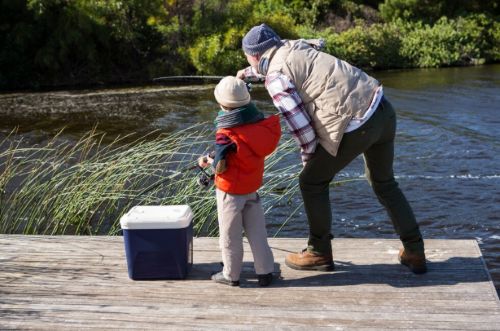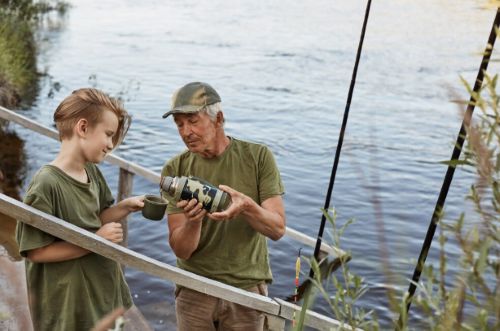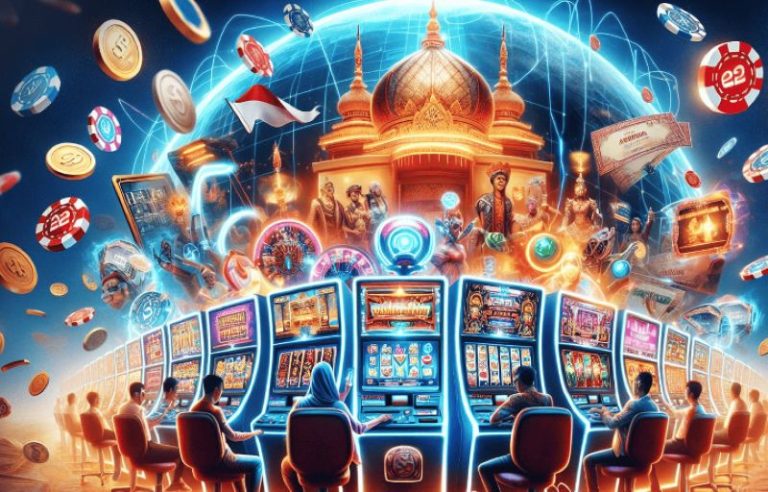

Bass fishing has long been seen as a laid-back pastime—a quiet morning on the lake, a bit of friendly competition, maybe a tall tale or two over lunch. But today’s anglers are casting with a deeper purpose. The modern bass fisher isn’t just out for a trophy photo—they’re part of a growing movement that sees conservation and sport as two sides of the same coin.
Ethical bass fishing isn’t just a trend—it’s a shift in mindset. Whether you’re a lifelong angler or just picking up a rod for the first time, there’s a good chance you’ve felt the pull toward doing things better, cleaner, and more intentionally.
And it’s not just individuals leading the charge. Licensed guide services like Bass Online have become key players in this movement, making sure that newcomers and seasoned fishers alike understand what it really means to fish responsibly.
Why Conservation Matters in Bass Fishing
Let’s start with the obvious: no fish, no fishing. While that might sound simplistic, it cuts to the heart of why ethical angling has taken root. As fishing has grown in popularity, so have concerns about pressure on fish populations and the health of the freshwater habitats they call home.
Bass are resilient, sure—but they’re not invincible. Overfishing, habitat destruction, and poor handling practices can take a toll on even the most abundant lakes. The good news? Anglers can be part of the solution.
Sustainable bass fishing is about preserving what we love, not restricting it. It’s not about fishing less—it’s about fishing smarter.
Catch and Release: Doing It Right
Catch-and-release fishing has been widely accepted for years, but doing it right is where the conservation rubber meets the road.
Here are some small changes that make a big impact:
- Use barbless hooks or flatten the barbs. It’s easier on the fish and makes unhooking quicker and cleaner.
- Keep fish in the water as much as possible. Lift them only for a quick photo—less air time means less stress.
- Wet your hands before handling. This helps preserve the fish’s protective slime layer, which prevents infections.
- Use rubber or knotless nets. Traditional nets can cause damage to scales and gills.
- Release fish promptly. If you’re not keeping it, don’t hold onto it longer than necessary.
When done properly, catch-and-release bass fishing boasts impressive survival rates—often above 90%. That means more fish growing, spawning, and staying in the system for others to enjoy.
The Role of Guides in Ethical Angling
Not everyone learns these techniques on day one. That’s where licensed guides come in—not just to help you catch fish, but to help you understand them.
Outfits like Bass Online do more than offer access to top fishing spots. They walk anglers through sustainable practices, help identify local conservation rules, and demonstrate proper handling techniques in real time.
For newcomers, this is huge. Instead of having to figure it out alone (and possibly make preventable mistakes), they’re immediately immersed in the habits and ethics that protect the resource. Even for veteran anglers, a good guide can be a great reminder to sharpen up those eco-conscious skills.
Plus, guides are often the first to notice environmental changes—like shifts in fish behavior, water quality, or invasive species. They’re unofficial stewards of the water, and when anglers listen to them, everyone benefits.
Gear That Respects the Ecosystem
Sustainable bass fishing isn’t just about what you do—it’s also about what you bring.
Here’s a gear checklist for eco-conscious anglers:
- Lead-free tackle: Lead weights and jigs can be toxic to fish and birds. Tin, tungsten, or bismuth are safer alternatives.
- Biodegradable line or lures: Some brands now offer tackle that breaks down naturally if lost.
- Reusable containers: Skip the single-use plastic bait cups and snack bags.
- Proper fish-handling gloves: Designed to be slick and fish-friendly, they reduce the risk of injuries.
- Trash bags: Yep—bring your own and take a little more out than you brought in. Leave the lake better than you found it.
The point isn’t perfection. It’s mindfulness. When you start thinking about how your gear affects the environment, you’re already making progress.
Teaching the Next Generation
Bass fishing isn’t just a solo pursuit—it’s often a family tradition. That’s why education plays such a big role in ethical angling. The next generation of fishers will be shaped by what we teach them today.
If you’re heading out with kids or young anglers, try this:
- Explain why you’re releasing certain fish.
- Let them help with clean-up at the end of the day.
- Talk about what healthy water looks like—and what it shouldn’t.
- Make conservation part of the fun. Who can spot the most birds? Who knows the name of that plant?
Simple, teachable moments can shape lifelong habits. And honestly, most kids love being part of something that feels important and protective.
The Myth of the “Trophy-Only” Mindset
For decades, the bass fishing community has been shaped by the image of the trophy fish—the big one. The wall mount. The brag-worthy haul.
But slowly, that image is shifting. While personal bests and proud catches still matter, the experience has taken center stage. Many anglers now measure success not just in pounds and inches, but in moments: the thrill of a topwater strike, the serenity of a glassy morning, the memory of teaching someone new.
This doesn’t mean letting go of competition—it just means broadening what counts as a “win.”
Conservation Isn’t a Buzzword—It’s a Culture
One of the most powerful things about the bass fishing community is how self-regulating it can be. Ethical anglers keep each other in check—not in a harsh way, but in a way that says, “Hey, we all care about this.”
Social media has helped too. Platforms like Instagram and YouTube are filled with creators showing off sustainable fishing practices. Instead of fish-on-a-stringer pics, we’re seeing more fish-in-the-water releases, habitat restoration efforts, and shoutouts to conservation-focused guides.
That cultural shift makes it easier for new anglers to jump in the right way. When conservation is the default, better habits follow naturally.
How You Can Get Involved
You don’t need to overhaul your whole approach to start fishing more ethically. Small, consistent steps are where the real impact happens.
A few ideas to start with:
- Join a local cleanup day around a lake or river.
- Buy a fishing license—the funds often support wildlife agencies and habitat restoration.
- Volunteer with youth fishing programs.
- Support guides and companies who prioritize sustainability.
- Speak up when you see others doing harm—but do it kindly.
The more involved you become, the more the water becomes not just a place to fish, but a place you help protect.

Final Cast: Doing Good While Doing What You Love
At its best, bass fishing connects us to something bigger—nature, rhythm, stillness, challenge, memory. That connection comes with responsibility, but also with joy. When we fish with intention, we not only protect the sport we love—we make it better for everyone who comes after us.
Whether you’re out with friends, on a solo mission, or booking a guided trip through a responsible provider like Bass Online, every decision can reflect your values. Ethical bass fishing isn’t about sacrifice—it’s about leaving a legacy worth being proud of.
So cast your line, release with care, and keep showing the world how thoughtful anglers do it.


